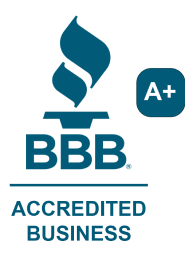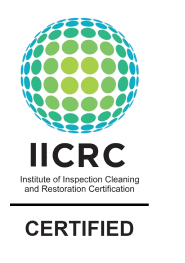When disaster strikes, call on the most reliable professionals for impeccable restoration services. At Innovative Restorations, we're much more than a local restoration company, we also specialize in bathroom remodeling to take your space to the next level.
We always go above and beyond to guarantee satisfaction, earning us an A+ rating and accreditation with the Better Business Bureau. Our Knoxville and Cookeville team services Cookeville with the following outstanding services:
- Restoration & Emergency Services
- Storm Damage
- Bathroom Remodeling
- Crawl Spaces
- Mold Removal & Remediation
Dependable, Comprehensive Restoration Services in Cookeville
No matter how big and complex the situation may seem, our team provides supportive service every step of the way. Our trained and skilled restoration contractors have extensive experience handling various damage restoration needs for our valued clients. We specialize in the following restoration services in Cookeville:
- Emergency Cleaning Services: Our emergency services including emergency board-ups are always available when unexpected damage, mold, or fire strikes.
- Biohazard Restoration Services: We're your trusted biohazard cleanup contractor for discreet, efficient, and meticulous results that offer peace of mind.
- Water Damage Repairs: After flooding, a burst pipe, or water leaks, our team offers detail-oriented water damage restoration solutions that last.
Professional Cookeville Storm Restoration Contractors
After severe weather like wind, hail, and flooding, our expert storm restoration contractors will make sure no damage goes unnoticed. The team at Innovative Restorations will ensure that your property receives our utmost attention to detail during every storm restoration service.
Cookeville, TN Plumbing Services & 24/7 Emergency Repairs
Innovative Restorations is the go-to source for dependable plumbing solutions in Cookeville, TN. Their team handles everything from unexpected leaks to worn-out water heaters with efficient, high-quality repairs. Offering round-the-clock emergency plumbing, they’re ready to respond whenever problems strike—day or night. Cookeville residents count on Innovative Restorations for fast service, lasting results, and peace of mind.
Stunning Bathroom Remodeling Solutions
Reimagine your existing bathrooms with a refreshing update from our outstanding Cookeville bathroom remodeling contractors. We offer custom renovation solutions to get you into the bathroom of your dreams. Don't just take our word for it, trust the countless positive reviews and recommendations that put us as a top bathroom remodeler in Tennessee.
Expertise in Crawl Space Restoration Services
Our restoration services go beneath the surface to address areas of your property that can easily go unnoticed by other companies. Our services extend to the crawl space of your home, ensuring that every square inch of your property is safe from further damage. Enjoy working with a dedicated crawl space contractor who puts the needs of each customer first.
Reach Out Today for More Information and a Free Quote
When it comes to restoration needs, there's no time to waste! Allow our professional team to tackle your Cookeville restoration, storm damage, bathroom, and crawl space renovation as quickly as possible. Reach out today to get started with a free quote!





